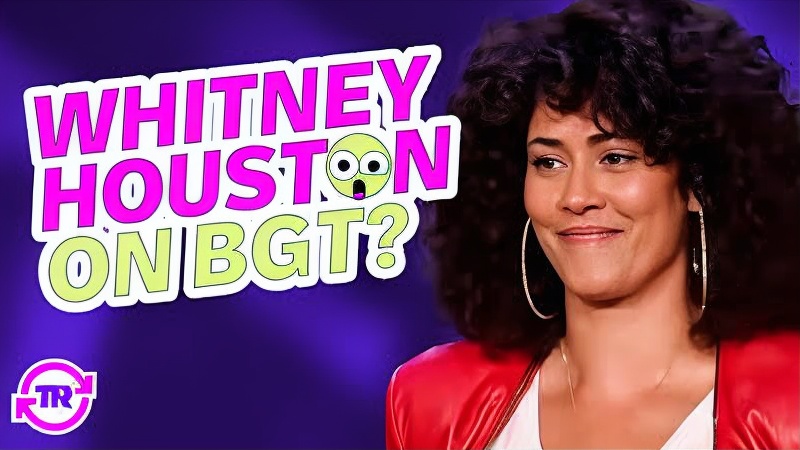The Got Ability stage had seen its fair share of spectacles. From dazzling dancers to pint-sized prodigies, each performance added fuel to the fire of the show’s ever-growing fame. But none of the judges—nor the millions watching from their living rooms—could have predicted what was about to unfold.
Her name was Naledi. She was not flashy, nor famous. A mother of three from the outskirts of Cape Town, she stepped onto the stage with a quiet presence that contrasted starkly with the glittering chaos around her. Dressed in a plain lavender dress, her posture stiff, hands clenched like she might unravel if she let go.
“Good evening,” she said, barely above a whisper.
“What’s your name, darling?” one of the judges asked, leaning forward.
“Naledi.”
“And what brings you here today?”
She paused, glanced at the audience—an ocean of strangers—and took a shaky breath.
“I made a promise to my children,” she said. “That I would show them what it means to be brave.”
A few claps scattered through the room, encouraging, polite. The music queued, and everyone expected a ballad, perhaps a tribute. But then the stage darkened. Silence. A single spotlight flickered on, casting her in an ethereal glow.
And then—she began to speak.
Not sing. Not dance. But speak—in a low, melodic rhythm. Poetry.
Each word poured out like water from a broken dam. Raw, painful, beautiful. She told the story of a woman buried in the weight of silence. Of bruises hidden beneath smiles. Of the fear that creeps in with the night and the courage it takes to get up the next day. It was not performance. It was confession.
She spoke of her husband—the man who had once made her laugh but later made her bleed. Of how she escaped one night with nothing but her children and the clothes on their backs. Of rebuilding, not just her life, but her self-worth.
The room held its breath. Not even a cough dared disturb her rhythm.
And then, as her final verse approached, she raised her gaze to the audience.
“I stand here not because I am healed,” she said, voice now clear, unwavering. “But because I am healing—and healing is brave.”
Silence. A heartbeat. Then an explosion of applause.
The judges wiped their eyes, stunned. One of them stood, shaking his head.
“Naledi,” he said, “that wasn’t a performance. That was a revolution.”
She advanced to the finals—not for being the best singer or dancer, but for moving a nation. Her performance was replayed across social media, igniting conversations on domestic abuse, mental health, and the quiet courage of survivors.
But the fairytale didn’t end there.
Two weeks before the finale, Naledi disappeared.
No messages. No calls. Her phone off. Her children, who had been staying with a friend in Cape Town during filming, were picked up by social services. The nation that had lifted her up was now gripped by confusion and fear.
Speculations ran wild. Had the pressure gotten to her? Had her abuser found her? Had she run?
Then, the night of the finale arrived. A tribute was planned. A montage of her words. Judges in black. The crowd subdued.
But halfway through the program, the lights dimmed unexpectedly.
A voice echoed through the speakers.
“Forgive me. I had to disappear… so I could finish what I started.”
The audience gasped. The screen lit up—not with the pre-planned tribute, but with a live broadcast from a courtroom.
Naledi stood there, in a modest navy suit. Composed. Unshaken.
“I promised my children I’d show them bravery,” she said to the camera. “I needed to be more than a voice on a stage. I needed to testify.”
It was her trial.
The man she had fled from had been arrested just days after her semi-final performance. Naledi had tracked him down through legal aid she gained after the show’s publicity. With the help of a support network of survivors, she had gathered enough evidence to bring him to court.
She had chosen to stay away—not because she was afraid—but because she was preparing for the final act of her promise.
The crowd in the studio stood in stunned silence as the broadcast ended.
A week later, Naledi returned—not to the Got Ability stage, but to her children. She declined interviews. Declined the book deals. She donated her winnings to shelters and wrote curriculum for abuse survivors using poetry as therapy.
But once a month, she would perform quietly at local community centers. No tickets. No cameras.
Just a woman. A voice. A promise kept.
And in those rooms, filled with faces like hers, Naledi reminded them all that bravery doesn’t always roar—it sometimes trembles, walks quietly, and speaks softly… but changes everything.
